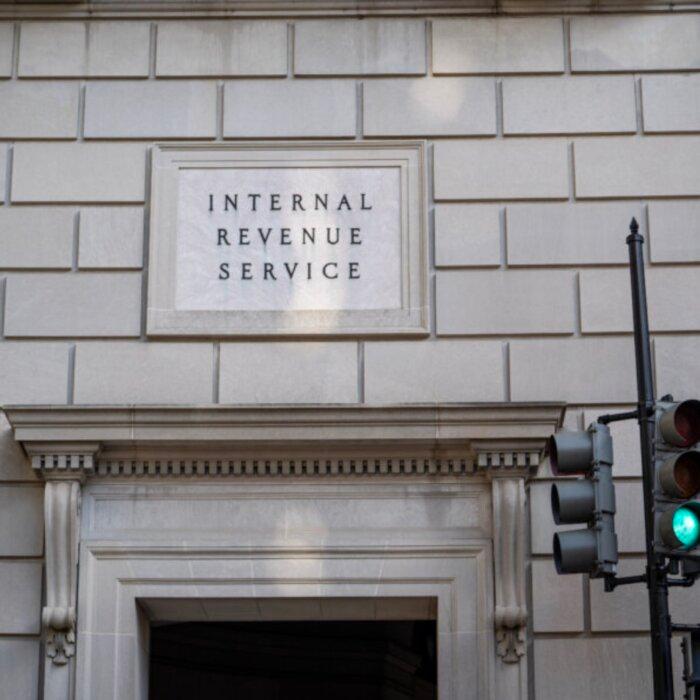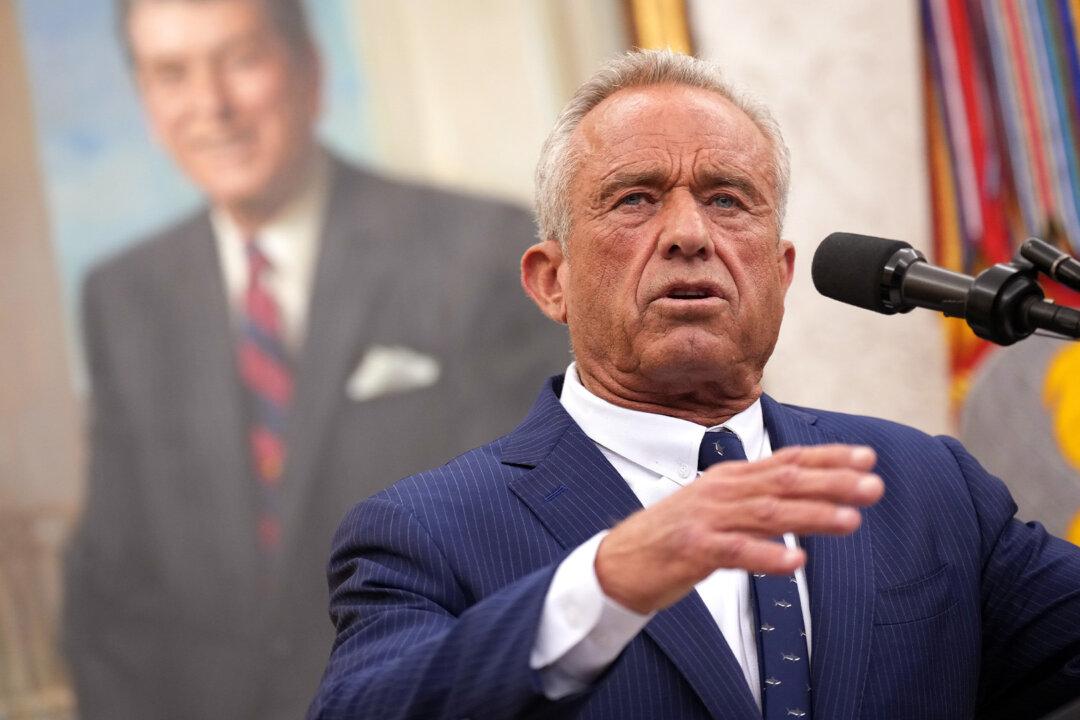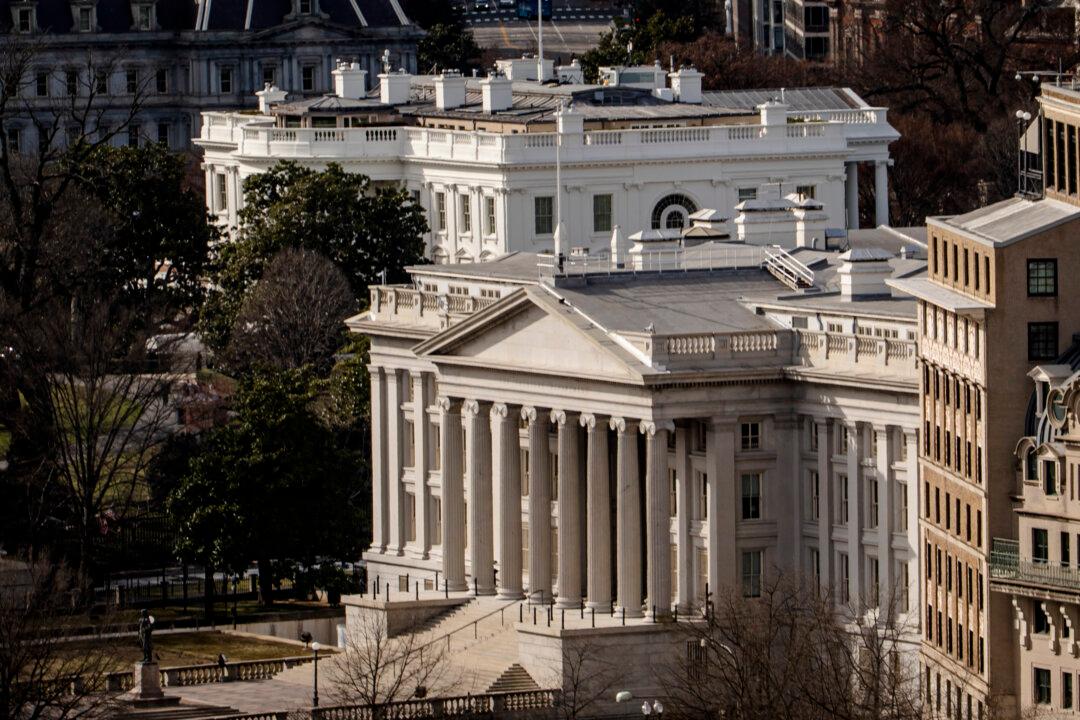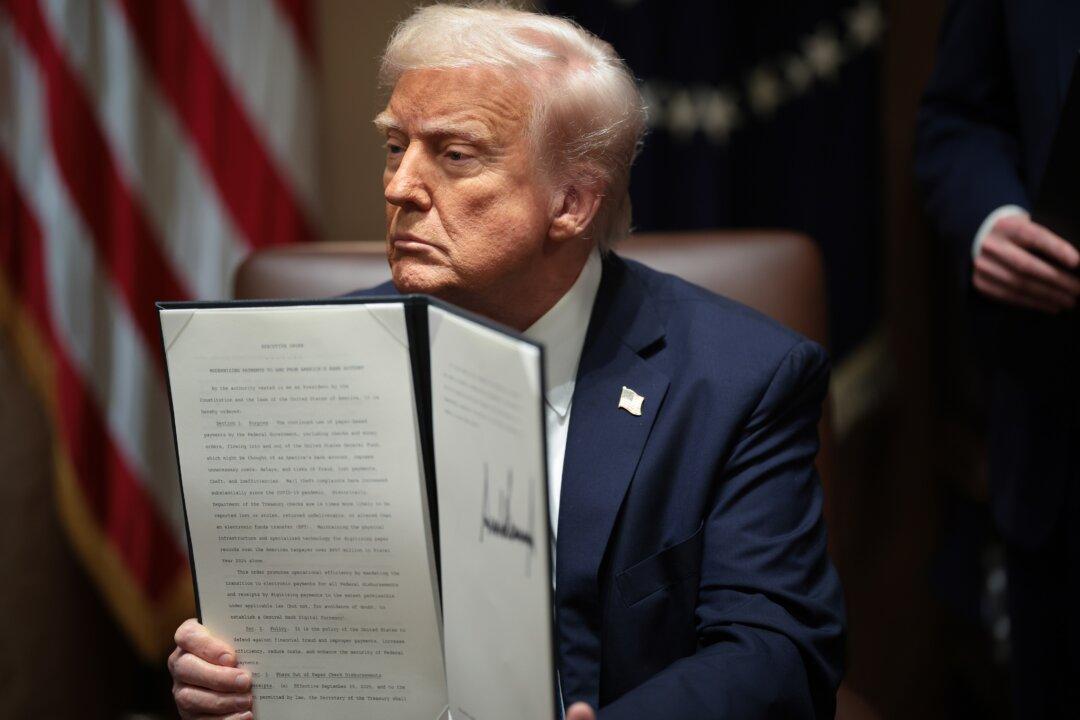Good morning, and welcome to The Epoch Times News Brief for Saturday, Oct. 19, 2024. I’m Bill Thomas, we have some very compelling stories to share with you right now, and here’s what’s going on.
Former President Donald Trump compliments his top political rival, a huge amount of evidence regarding Trump’s election case has just been released to the public, and a seldom-used wartime powers act has recently been invoked and we’ll tell you why.
Also, Florida sues the federal government over voting irregularities, and interest rates are finally dropping, which means your bank account could be negatively impacted.
Trump Asked to Name 3 Things He Admires About Harris
Earlier this week at a Univision-hosted town hall event, Trump complimented Vice President Kamala Harris after an audience member asked him to name three of his opponent’s virtues.Trump said that Harris “seems to have an ability to survive,” because she was out of the race—referring to her departure from the 2020 Democratic presidential nominating contest—and now she’s running for president, and he also said that Harris seems to have maintained some very long friendships.
Trump also said Harris “seems to have a nice way” about the manner in which she behaves, but he also pointed out that he’s not a fan of her policies.
Harris was recently asked a similar question at a different town hall meeting, and she initially answered by criticizing Trump’s approach to politics, but she went on to say that she thinks Trump really loves his family, which she believes to be a very important quality.
Harris also pointed out that she’s only met Trump once, and that was at last month’s televised debate.
By the way, both Trump and Harris have recently ramped up their media appearances, showing up on podcasts, participating in town hall events, and sitting down for interviews with major television networks.
It’s worth mentioning that both candidates have also indicated that they would appear on podcaster Joe Rogan’s popular program in the near future. Rogan’s listeners are largely male and mostly under the age of 35.
Judge Releases Redacted Evidence in Trump Election Case
District of Columbia Judge Tanya Chutkan has just made public a redacted version of the appendix to special counsel Jack Smith’s immunity motion. The evidence consists of four hefty volumes and nearly 1,900 pages, although a large portion of the files are blacked out.You should know that the bulk of the first volume is made up of a series of interviews from the House Select Committee on Jan. 6, the second volume consists mainly of Trump’s tweets, and the other volumes include a great deal of publicly available information, including press releases.
The documents also include budget and trip details, archived web pages from the White House, and emails from the Trump–Pence campaign.
By the way, the files were finally made public after weeks of dispute regarding both the redactions themselves and the timing of the release. Trump’s legal team wanted to delay the release until next month, following the presidential election and also after Trump files an expected immunity brief.
However, earlier this week, the judge said that if she followed Trump’s request to delay the release of Smith’s appendix, she would be engaging in a form of election interference.
You should know that Trump’s initial motion to dismiss the case based on presidential immunity prompted a recent U.S. Supreme Court ruling that led Smith to file a superseding indictment earlier this month.
It remains unclear how this newly released appendix will impact voters who are participating in the upcoming presidential election, which is only 17 days away.
Federal Government Sued Over Voting Data
Earlier this week, authorities in Florida sued the federal government, alleging that U.S. officials are illegally refusing to cooperate with the state’s effort to remove noncitizens from its voter rolls.By the way, Florida law requires state authorities to maintain accurate voter registration records, and federal law requires the U.S. government to respond to inquiries from any official agencies that are trying to verify the citizenship status of any person within their jurisdiction.
You should know that the Florida Department of State asked the U.S. Citizenship and Immigration Services (USCIS) for data on individuals it identified as potentially being noncitizens who are registered to vote.
However, the USCIS director said that the agency couldn’t provide any requested information that isn’t found in a specific program used to verify the immigration status of certain noncitizens.
The lawsuit says that even though Florida authorities have access to the program, they cannot check all of the possible noncitizens because the database requires officials to have specific biographic information, including an ID number, to check a person’s citizenship status.
The state’s attorney general says that without this information, Florida cannot ensure the integrity of its elections and maintain accurate voter registration records.
Florida authorities are asking the court to force U.S. officials to provide the requested information, and also to reimburse the state for legal costs and attorneys’ fees.
A Department of Homeland Security spokesperson told The Epoch Times that the agency does not comment on pending litigation. The spokesperson said that the “USCIS has engaged with Florida and will continue to correspond with them directly through official channels.”
By the way, the suit does not specify how many potential noncitizens Florida authorities have already identified.
Wartime Powers Used to Address IV Fluid Shortage
Earlier this month, the U.S. Department of Health and Human Services (HHS) invoked the Defense Production Act of 1950 to accelerate the cleanup and repair of a crucial Baxter International medical facility in North Carolina, which is the largest producer of certain intravenous (IV) solutions in the United States.Just last month, Baxter closed the company’s North Cove production plant in Marion due to flooding in the aftermath of the hurricane, and that facility is the source of 60 percent of the country’s vital IV fluid supply. It’s worth mentioning that hospitals use over 2 million IV bags every day, and that following Hurricane Helene, medical facilities faced a severe shortage of the precious life-saving product.
The American Hospital Association (AHA) represents around 5,000 hospitals and tens of thousands of health care workers, and earlier this month, the group urged the federal government to declare a national emergency because of the shortage of IV solutions.
Earlier this week, a spokesperson for the HHS told The Epoch Times that the department is now working with Baxter to identify “supply chain challenges” and help the company get the critical materials it needs to ramp up production levels once again. According to a recent HHS update, hospital orders had already increased by 50 percent from the previous week as a result of the federal action.
Now, this is interesting: The boost in resources is due in part to a Food and Drug Administration (FDA) action that temporarily allows the importation of 19 different IV solution and dialysis products from international manufacturing plants to bolster domestic supply.
By the way, the Defense Production Act reportedly gives the U.S. president significant authority over the private sector to request its collaboration with the federal government. Recently, the act was invoked during the COVID-19 pandemic to help ensure the availability of critical medical resources including ventilators, personal protective equipment, and even vaccines.
Interest Rates Falling: What It Means
Financial experts are warning people with saving accounts that the days of high-yield returns are numbered.In case you didn’t already know, the Federal Reserve began hiking interest rates a couple of years ago to combat inflation, and eventually, the central bank increased those rates 11 times until it was over 5 percent.
These moves allowed people to earn a decent return from a number of low-risk investment vehicles, including high-yield savings accounts, certificates of deposit (CDs), money-market funds, and Treasury bills.
However, last month the Fed began cutting interest rates, and these return numbers could change significantly as we head into next year. While the Fed has telegraphed additional rate cuts, it remains uncertain how much the bank interest rates will be dropping.
It’s also unclear if the coming low-rate climate will force savers to reconsider their love for cash and shift to investment alternatives that might offer better returns.
One health management expert told The Epoch Times that savings accounts are still appealing to lots of households because they’re safe and offer a good option in the short-term. Additionally, a large number of financial institutions still offer impressive returns.
The financial expert recommends that savers continue to park a portion of their money in savings accounts to ensure both easy access and safety. He also recommends investing in CDs or U.S. Treasury investments if you don’t need your money right away.
By the way, earlier this year, one financial services company called Allianz reported that more than two-thirds of Americans had not contributed to their savings accounts as much because of ongoing inflation, and more than half of them took on more debt due to the pressures of increasing prices.
And now, it looks like our time is just about up for today, so we’re going to call it a wrap for the Saturday edition of The Epoch Times News Brief.
Don’t forget the News Brief Motto: We’re portable, affordable, and always on-demand.
And finally, as we do each and every day on this program, we wrap everything up with a very notable quote, and this one comes to us from Kristen Butler, who said: “Sunsets are proof that no matter what happens, every day can end beautifully.”
Hopefully, whatever part of the world you’re in right now, you’ll be able to witness a spectacular sunset later in the day.
For all of us here at The Epoch Times News Brief, I’m Bill Thomas.
The Epoch Times News Brief program was written today by David Ross.
Thank you for making us your one-stop source for a concise, accurate, and unbiased daily synopsis of many of the news stories you need to know about.
Enjoy the remainder of your Saturday, have a great weekend, and we’ll see you right back here next time for another edition of The Epoch Times News Brief.
For now, let’s all continue to watch out for one another, and have an absolutely superb day today. Bye for now.







